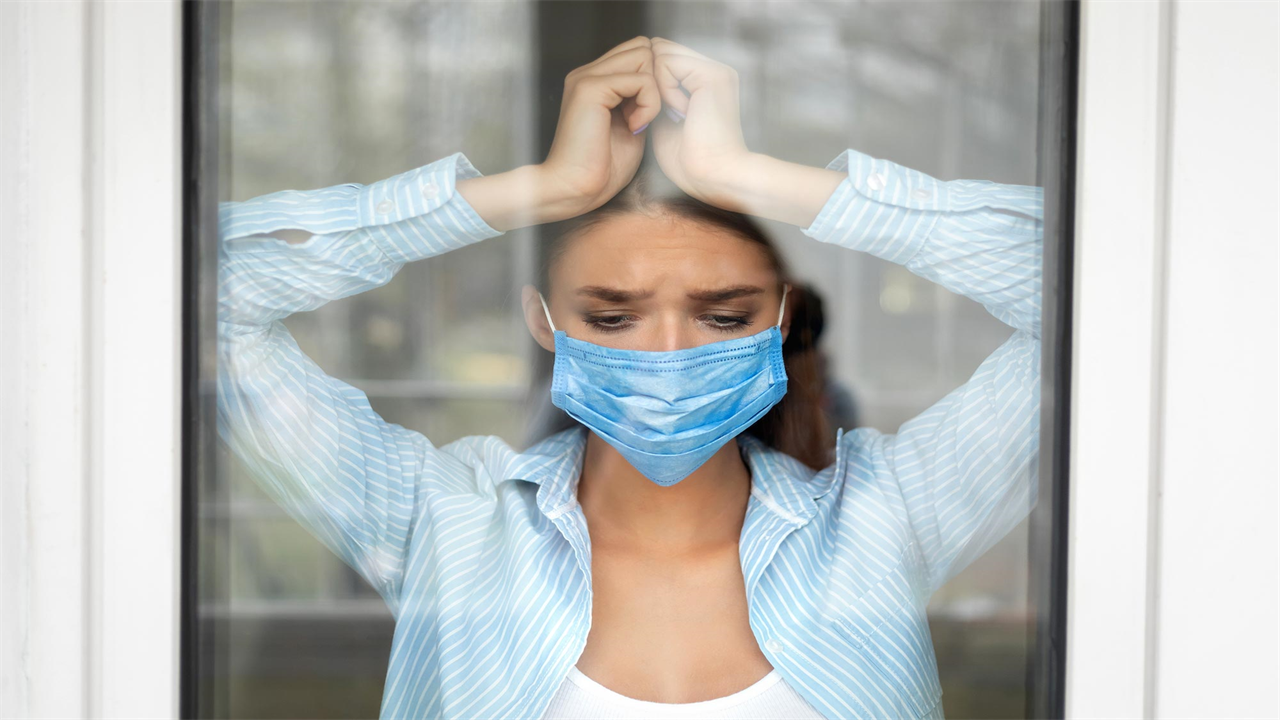1 in 3 Adults Anxious, Depressed
0 View
Share this Video
- Publish Date:
- 6 June, 2021
- Category:
- Covid
- Video License
- Standard License
- Imported From:
- Youtube
Tags

COVID-19 has led to mental health problems in one in three adults, large-scale meta-analysis reveals.
One in three adults, especially women, younger adults and those of lower socioeconomic status, experience mental health problems related to COVID-19, researchers from Duke-NUS Medical School, Singapore, reported in the journal PLOS ONE.
COVID-19 continues to pose a serious threat to public health around the world, and interventions such as lockdowns, quarantine and social distancing are negatively impacting the mental wellbeing of the population. The pandemic has increased the burden of psychological distress, including anxiety, depression, post-traumatic stress and insomnia. However, the factors associated with increased susceptibility to mental health problems in adults in the general population during COVID-19 are not yet well known.
“Understanding these factors is critical to designing preventive programs and mental health planning during the rapidly evolving COVID-19 outbreak,” explains Professor Tazeen Jafar, of the Health Services and Systems Research Program at Duke-NUS, who led the study. “These factors can be used to identify populations at high risk for mental health problems so that they can be offered targeted interventions at a distance and in person.”
Prof Jafar and her team conducted a meta-analysis of 68 studies conducted during the pandemic, involving 288,830 participants from 19 countries, to assess risk factors associated with anxiety and depression in the general population. They found that among the people most affected by COVID-19-related anxiety or depression, women, younger adults, individuals of lower socioeconomic status, those living in rural areas, and those at high risk for COVID-19. infection were more likely to cause psychological distress.
The finding that women were more likely to have mental health problems than men is consistent with other global studies that have found that anxiety and depression are more common in women. “Women’s lower social status and less preferential access to health care compared to men could potentially account for the exaggerated negative psychosocial impact on women,” the researchers suggested. “For example, mental health outreach programs should proactively target women.”
Younger adults aged 35 and under were more likely to have mental health problems than those older than 35. While the reasons for this are unclear, previous studies have suggested it may be due to younger people’s greater access to COVID-19 information through the media. This current study also confirmed that longer media exposure was associated with a greater likelihood of anxiety and depression.
Other factors associated with mental health problems included living in rural areas; lower education, lower income or unemployment; and are at high risk of COVID-19 infection. However, having stronger family and social support and using positive coping strategies has been shown to reduce the risk of mental health problems.
“The general public and healthcare professionals need to be aware of the high burden of mental health problems during the pandemic, as well as education about coping strategies,” said Prof Jafar. “Patients should be encouraged to seek help and access mental health counseling services with appropriate referrals.”
Professor Patrick Casey, Senior Vice-Dean for Research at Duke-NUS, commented: “Even with the tremendous advances in vaccines, the world has come to realize that the COVID-19 pandemic will help us for the long term. Professor Jafar’s study provides valuable insights into the psychological toll of the pandemic on populations around the world and highlights specific groups who could benefit from additional support, whether it be from their family or from a healthcare provider.”
Reference: “Factors Associated with Mental Health Problems During the 2019 Coronavirus Disease (COVID-19) Pandemic on the Predominant General Population: A Systematic Review and Meta-analysis” by Yeli Wang, Monica Palanichamy Kala and Tazeen H. Jafar, 28 December 2020, Suddenly A.
DOI: 10.1371/journal.pone.0244630










